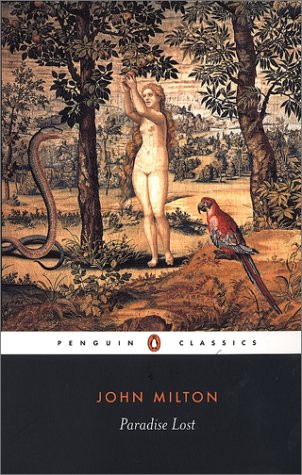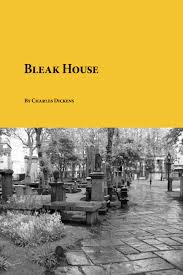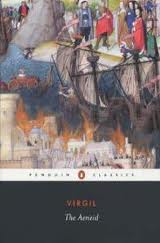Author Photo And Bio
 1. Paradise Lost by John Milton (1667). Recasting the biblical story of Adam and Eve’s fall from grace, this epic poem details Satan’s origins, his desire for revenge, his transformation into the serpent, and his seduction of Eve. The poem extends our understanding of Christian myth in lush and challenging language. Though Milton seeks to explain “the ways of God to man,” he gives Satan — “Better to reign in hell than serve in heaven” — the best lines.
1. Paradise Lost by John Milton (1667). Recasting the biblical story of Adam and Eve’s fall from grace, this epic poem details Satan’s origins, his desire for revenge, his transformation into the serpent, and his seduction of Eve. The poem extends our understanding of Christian myth in lush and challenging language. Though Milton seeks to explain “the ways of God to man,” he gives Satan — “Better to reign in hell than serve in heaven” — the best lines.
 2. War and Peace by Leo Tolstoy (1869). Mark Twain supposedly said of this masterpiece, “Tolstoy carelessly neglects to include a boat race.” Everything else is included in this epic novel that revolves around Napoleon’s invasion of Russia in 1812. Tolstoy is as adept at drawing panoramic battle scenes as he is at describing individual feeling in hundreds of characters from all strata of society, but it is his depiction of Prince Andrey, Natasha, and Pierre —who struggle with love and with finding the right way to live —that makes this book beloved.
2. War and Peace by Leo Tolstoy (1869). Mark Twain supposedly said of this masterpiece, “Tolstoy carelessly neglects to include a boat race.” Everything else is included in this epic novel that revolves around Napoleon’s invasion of Russia in 1812. Tolstoy is as adept at drawing panoramic battle scenes as he is at describing individual feeling in hundreds of characters from all strata of society, but it is his depiction of Prince Andrey, Natasha, and Pierre —who struggle with love and with finding the right way to live —that makes this book beloved.
 3. Middlemarch by George Eliot (1871–72). Dorothea Brooke is a pretty young idealist whose desire to improve the world leads her to marry the crusty pedant Casaubon. This mistake takes her down a circuitous and painful path in search of happiness. The novel, which explores society’s brakes on women and deteriorating rural life, is as much a chronicle of the English town of Middlemarch as it is the portrait of a lady. Eliot excels at parsing moments of moral crisis so that we feel a character’s anguish and resolve. Her intelligent sympathy for even the most unlikable people redirects our own moral compass toward charity rather than enmity.
3. Middlemarch by George Eliot (1871–72). Dorothea Brooke is a pretty young idealist whose desire to improve the world leads her to marry the crusty pedant Casaubon. This mistake takes her down a circuitous and painful path in search of happiness. The novel, which explores society’s brakes on women and deteriorating rural life, is as much a chronicle of the English town of Middlemarch as it is the portrait of a lady. Eliot excels at parsing moments of moral crisis so that we feel a character’s anguish and resolve. Her intelligent sympathy for even the most unlikable people redirects our own moral compass toward charity rather than enmity.
 4. Metamorphoses by Ovid (8 c.e.). Shining through Ovid’s poetic encyclopedia of myths involving the transformations of gods and humans is this Heraclitean truth: existence is change. His versions of Orpheus, Narcissus, Pygmalion, and Hercules have been etched in our collective memory. Yet he was, as a critic once said, “counter-classical”—fun rather than imperial, personal rather than grave. Of all the Latin authors, Ovid, who also wrote a sex manual, is the one who never once reminds you of a marble bust.
4. Metamorphoses by Ovid (8 c.e.). Shining through Ovid’s poetic encyclopedia of myths involving the transformations of gods and humans is this Heraclitean truth: existence is change. His versions of Orpheus, Narcissus, Pygmalion, and Hercules have been etched in our collective memory. Yet he was, as a critic once said, “counter-classical”—fun rather than imperial, personal rather than grave. Of all the Latin authors, Ovid, who also wrote a sex manual, is the one who never once reminds you of a marble bust.
 5. Bleak House by Charles Dickens (1853). Dickens is best known for his immense plots that trace every corner of Victorian society, and Bleak House fulfills that expectation to perfection. The plot braids the sentimental tale of an orphan unaware of her scandalous parentage with an ironic and bitterly funny satire of a lawsuit that appears to entail all of London. In doing so, the novel encompasses more than any other Dickens novel, shows the author’s mature skills, and is the only Victorian novel to include an incident of human spontaneous combustion.
5. Bleak House by Charles Dickens (1853). Dickens is best known for his immense plots that trace every corner of Victorian society, and Bleak House fulfills that expectation to perfection. The plot braids the sentimental tale of an orphan unaware of her scandalous parentage with an ironic and bitterly funny satire of a lawsuit that appears to entail all of London. In doing so, the novel encompasses more than any other Dickens novel, shows the author’s mature skills, and is the only Victorian novel to include an incident of human spontaneous combustion.
 6. Frankenstein by Mary Shelley (1818). Readers should be grateful that Dr. Phil was not around in 1818. If he had been, Mary Shelley may have chosen to discuss her traumatic life with him. Instead, she turned trauma into art and wrote Frankenstein, in which the outcast Dr. Victor Frankenstein usurps God’s and woman’s life-giving power to create a monster who for all his desire cannot be loved. This novel about unwanted things is gripping, frightening, inspiring, and very different from the movies based on it.
6. Frankenstein by Mary Shelley (1818). Readers should be grateful that Dr. Phil was not around in 1818. If he had been, Mary Shelley may have chosen to discuss her traumatic life with him. Instead, she turned trauma into art and wrote Frankenstein, in which the outcast Dr. Victor Frankenstein usurps God’s and woman’s life-giving power to create a monster who for all his desire cannot be loved. This novel about unwanted things is gripping, frightening, inspiring, and very different from the movies based on it.
 7. The Aeneid by Virgil (19 b.c.e.). Like Achilles and Odysseus before him, Aeneas makes sacrifices for friendship and descends into the world of the dead, but he never finds peace or a true home. Aeneas does find support and love from the Queen of Carthage, Dido, but he flees in the night, abandoning her to suicide, overthrowing comfort and home to remain true to his quest (and the spell of the gods) to found the city of Rome.
7. The Aeneid by Virgil (19 b.c.e.). Like Achilles and Odysseus before him, Aeneas makes sacrifices for friendship and descends into the world of the dead, but he never finds peace or a true home. Aeneas does find support and love from the Queen of Carthage, Dido, but he flees in the night, abandoning her to suicide, overthrowing comfort and home to remain true to his quest (and the spell of the gods) to found the city of Rome.
 8. Moby-Dick by Herman Melville (1851). This sweeping saga of obsession, vanity, and vengeance at sea can be read as a harrowing parable, a gripping adventure story, or a semiscientific chronicle of the whaling industry. No matter, the book rewards patient readers with some of fiction’s most memorable characters, from mad Captain Ahab to the titular white whale that crippled him, from the honorable pagan Queequeg to our insightful narrator/surrogate (“Call me”) Ishmael, to that hell-bent vessel itself, the Pequod.
8. Moby-Dick by Herman Melville (1851). This sweeping saga of obsession, vanity, and vengeance at sea can be read as a harrowing parable, a gripping adventure story, or a semiscientific chronicle of the whaling industry. No matter, the book rewards patient readers with some of fiction’s most memorable characters, from mad Captain Ahab to the titular white whale that crippled him, from the honorable pagan Queequeg to our insightful narrator/surrogate (“Call me”) Ishmael, to that hell-bent vessel itself, the Pequod.
 9. Jane Eyre by Charlotte Brontë (1847). Like Wuthering Heights, this is a romance set in the isolated moors of rural England the Brontës called home. Its title character is an exceptionally independent orphan who becomes governess to the children of an appealing but troubled character, Mr. Rochester. As their love develops, the author introduces a host of memorable characters and a shattering secret before sending Jane on yet another arduous journey.
9. Jane Eyre by Charlotte Brontë (1847). Like Wuthering Heights, this is a romance set in the isolated moors of rural England the Brontës called home. Its title character is an exceptionally independent orphan who becomes governess to the children of an appealing but troubled character, Mr. Rochester. As their love develops, the author introduces a host of memorable characters and a shattering secret before sending Jane on yet another arduous journey.
 10. The Radetzky March by Joseph Roth (1932). At the Battle of Solferino, a young peasant soldier saves the Austrian emperor’s life, and from that moment forward the fortunes of the von Trotta family are linked with the “Old Man,” Franz Joseph. Roth tracks the decline of the Austro-Hungarian Empire, and the era of honor and order it represents, through the dissolution of the von Trottas, especially the timid, exhausted Carl Joseph, who almost ruins his family through carelessness and risks his life in battle trying to imitate his grandfather’s lost heroism.
10. The Radetzky March by Joseph Roth (1932). At the Battle of Solferino, a young peasant soldier saves the Austrian emperor’s life, and from that moment forward the fortunes of the von Trotta family are linked with the “Old Man,” Franz Joseph. Roth tracks the decline of the Austro-Hungarian Empire, and the era of honor and order it represents, through the dissolution of the von Trottas, especially the timid, exhausted Carl Joseph, who almost ruins his family through carelessness and risks his life in battle trying to imitate his grandfather’s lost heroism.